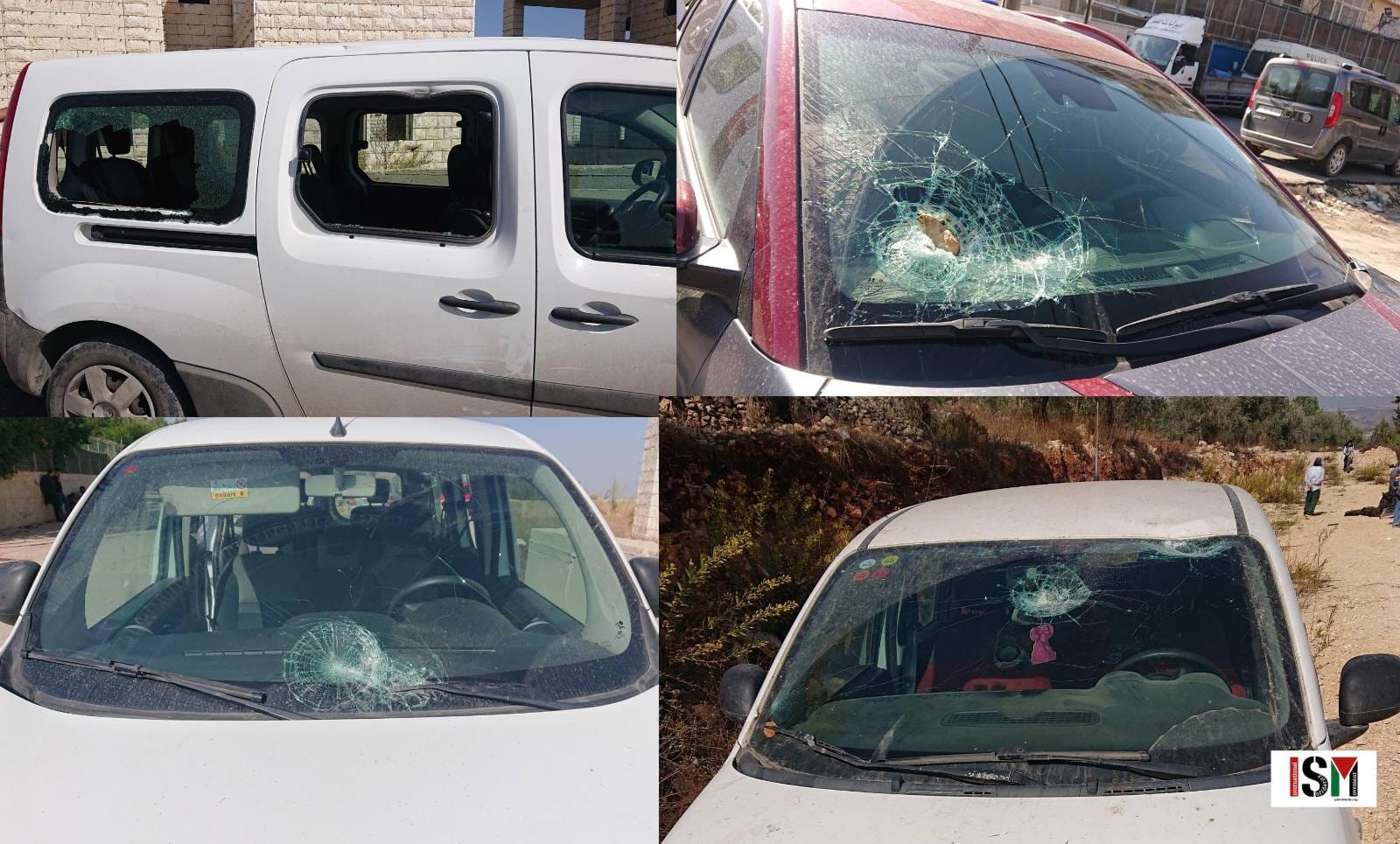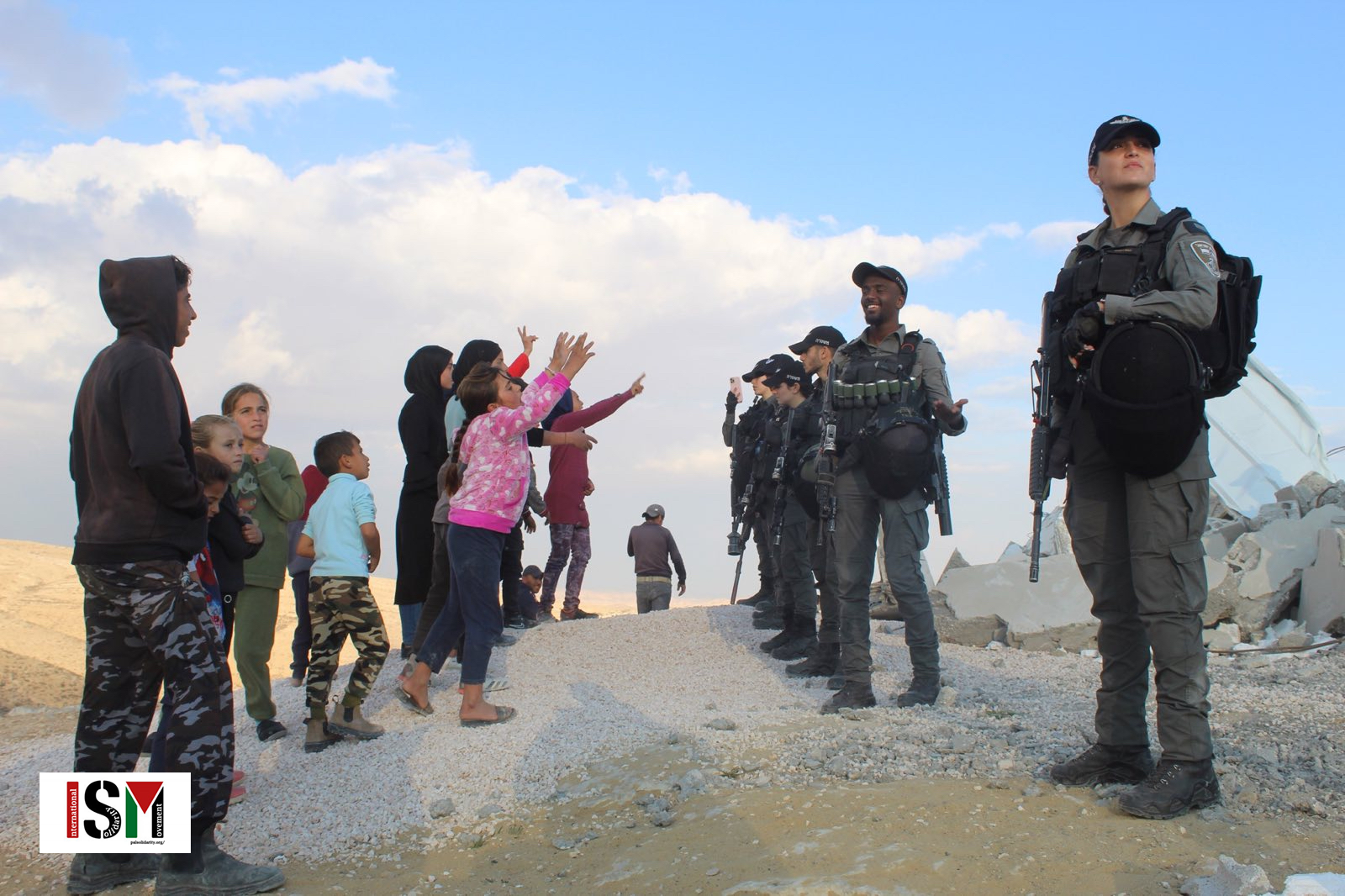Category: Reports
-
The olive harvest: Struggle, resistance and oppression
December 31 | International Solidarity Movement | Olive Harvest journal The olive harvest in Palestine (October – November) represents much more than simply picking olives. While it is an important contributor for the income of thousands of families in the West Bank – with a revenue between $160m and $190m in 2021 according to…
-
Attacks and disruption in Al-Khalil as settlers celebrate Sarah’s Day
December 29 | International Solidarity Movement | Al-Khalil Around 30,000 settlers gathered in Al- Khalil (Hebron) on Saturday, November 19, to celebrate Sarah’s Sabbath and wreaked havoc in the Old City market, attacking Palestinians and their shops, houses and destroying cars. This happened under the watch of the Israeli army who cordoned the area so…
-
IOF destroys Isfey al Fauqa school for second time in one month
On 6th December Israeli occupation forces (IOF) confiscated two tents, which were being used as a school in Isfey al Fauqa, a village situated within the region of Masafer Yatta in the South Hebron Hills. Israeli forces – with tear gas canisters at the ready – also destroyed a toilet which had been donated to…



